- Solan Sync
- Posts
- How to Build AI Agents with n8n
How to Build AI Agents with n8n
Learn how to build powerful no-code AI agents using n8n. This step-by-step guide covers workflow setup, OpenAI integration, memory features, and more—ideal for developers and automation enthusiasts.
What is n8n? How Does It Work?
n8n is an open-source automation platform created out of frustration with overpriced, hard-to-use proprietary systems. Built by Jan Oberhauser in Berlin, it follows the philosophy of "automation tools should empower users, not restrict them."
Think of n8n as a digital assembly line, where workflows are built by connecting nodes—each performing a specific task.
Each node handles a step in the process, starting with a trigger (like receiving an email or uploading a file), and data flows through the connected nodes.
No coding required: Use drag-and-drop to connect nodes for services like Google Sheets, OpenAI, and Slack.
Visual debugging: You can see data input/output at each step, making it easy to identify where things are breaking.
Self-hosting: You can install n8n on your own server with no usage limits—perfect for individuals or small teams testing ideas without worrying about costs.
Creating an AI Agent with n8n (Step-by-Step)
What is an AI Agent?
An AI agent is a system within a workflow that uses AI to make decisions or generate responses. Automation without AI is just simple rule-based processing. Adding AI creates a more dynamic system made up of:
Trigger (what starts the flow)
AI Action (the AI does something)
Result (output or decision from the AI)
Example: Building a Simple Chatbot
Step 0: Create an Account
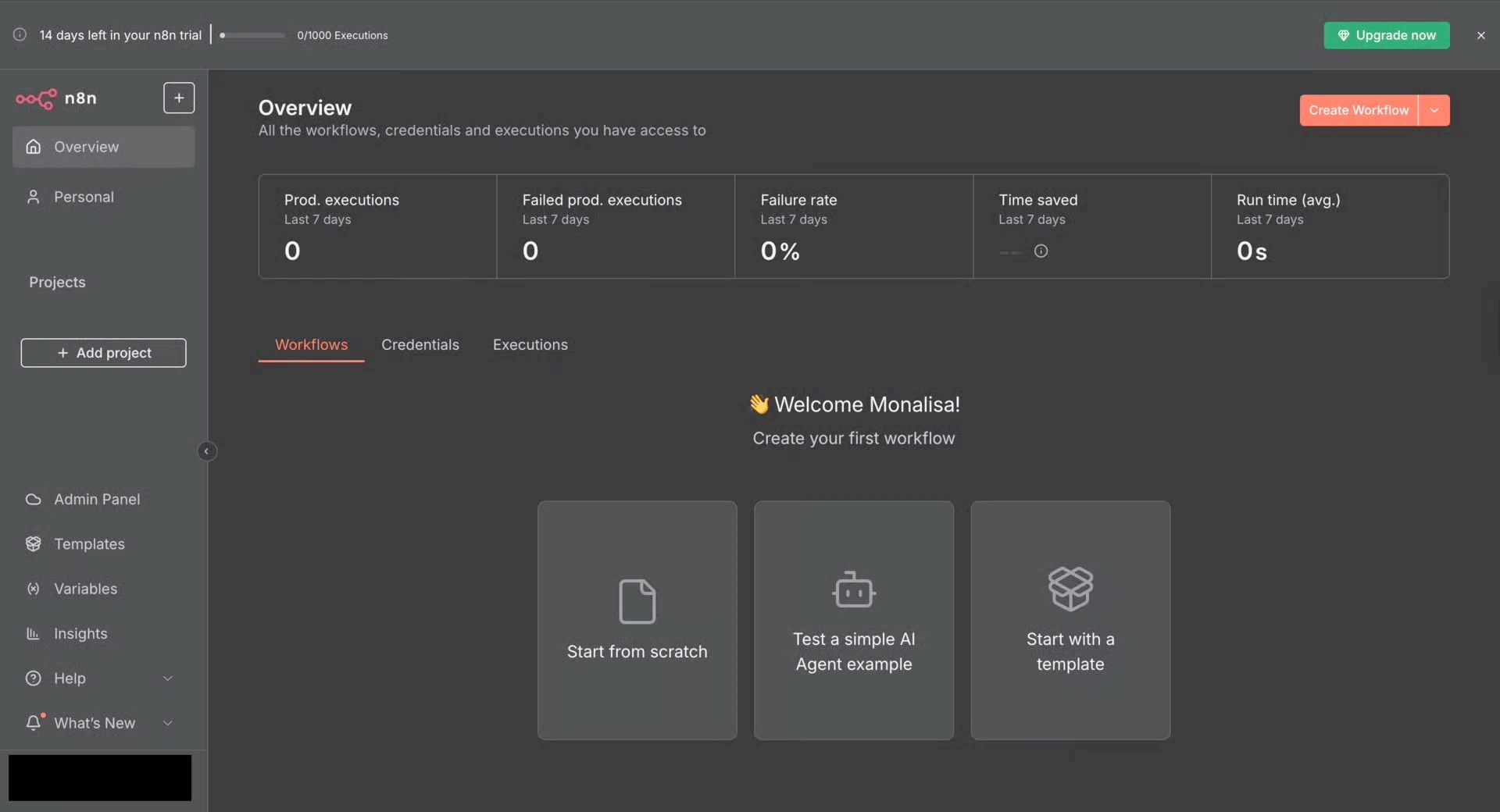
Sign up on the n8n website using your email, Google, or GitHub account.
A 14-day free trial is available.
Step 1: Create a New Workflow
Click "Create Workflow" on the top right of the interface.
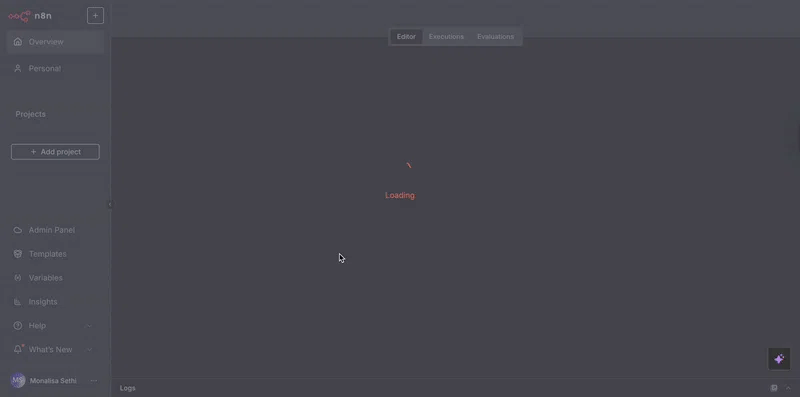
Step 2: Add a Chat Trigger Node
Add a trigger node such as “On Chat Message Received.”
This defines when the workflow starts (e.g., when someone sends a chat message).
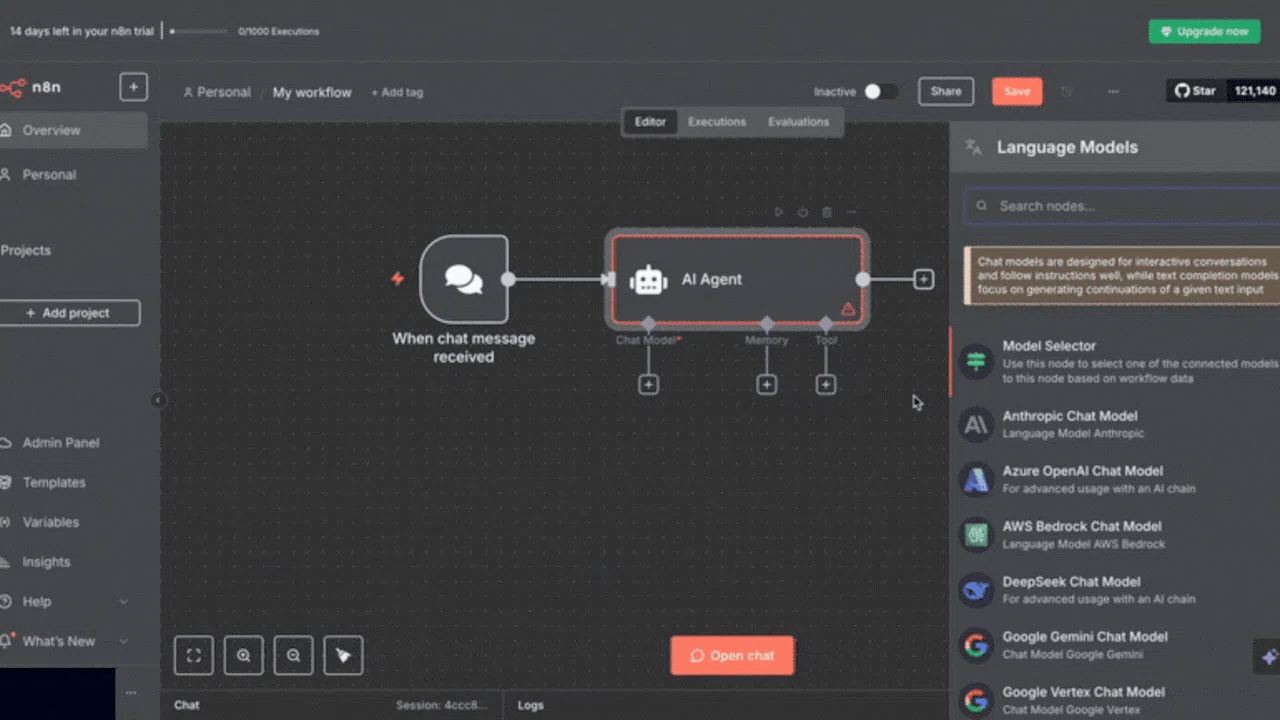
Step 3: Add the AI Agent Node
Drag in an "AI Agent" node and connect it to the chat trigger.
This acts as the "brain" of your bot, generating responses based on the input.
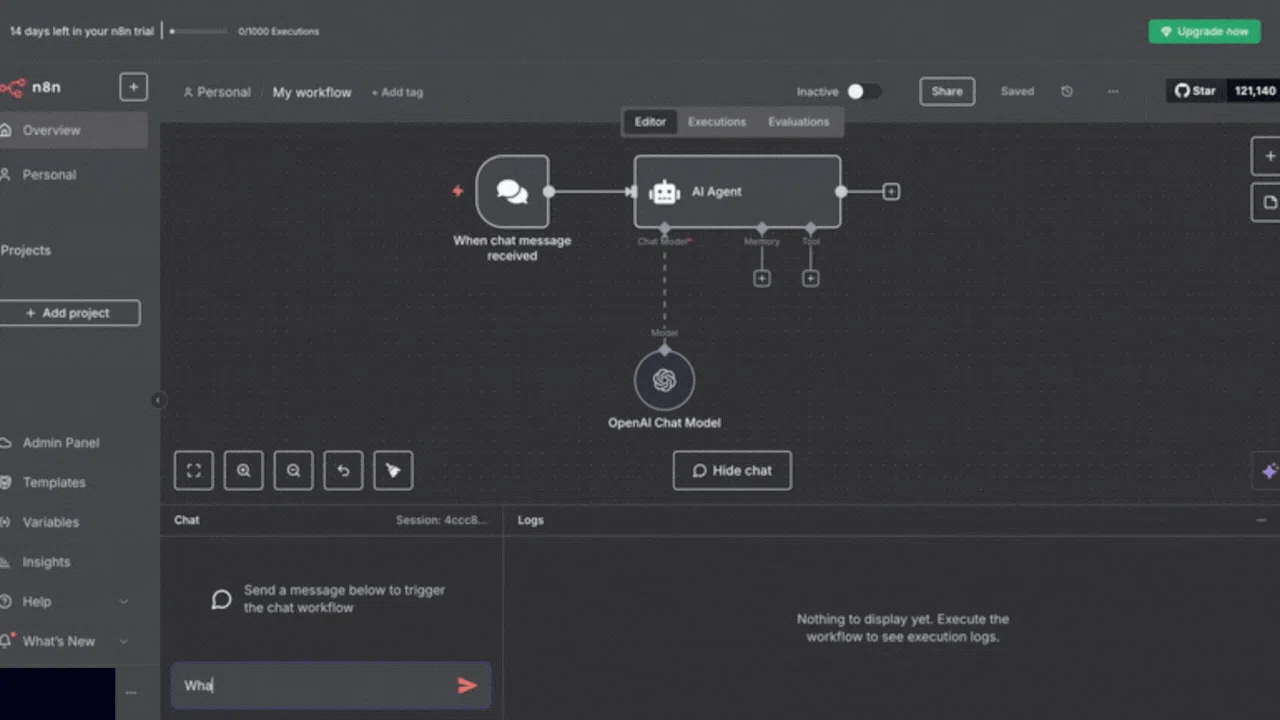
Step 4: Set Up the OpenAI Chat Model
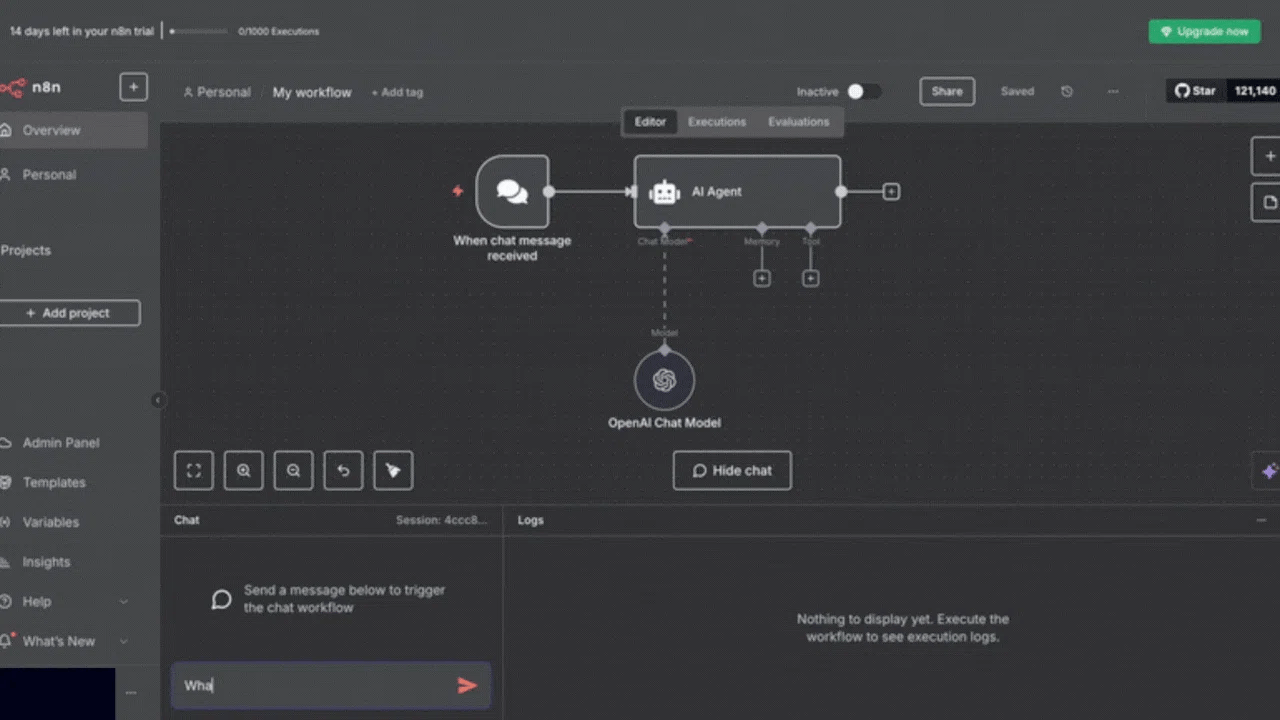
Inside the AI Agent node:
Add an OpenAI Chat Model node
Insert your OpenAI API key
Choose your model (GPT-3.5, GPT-4, etc.)
You can use OpenAI’s free trial credits (e.g., GPT-4.1-mini).
Step 5: Test Without Memory
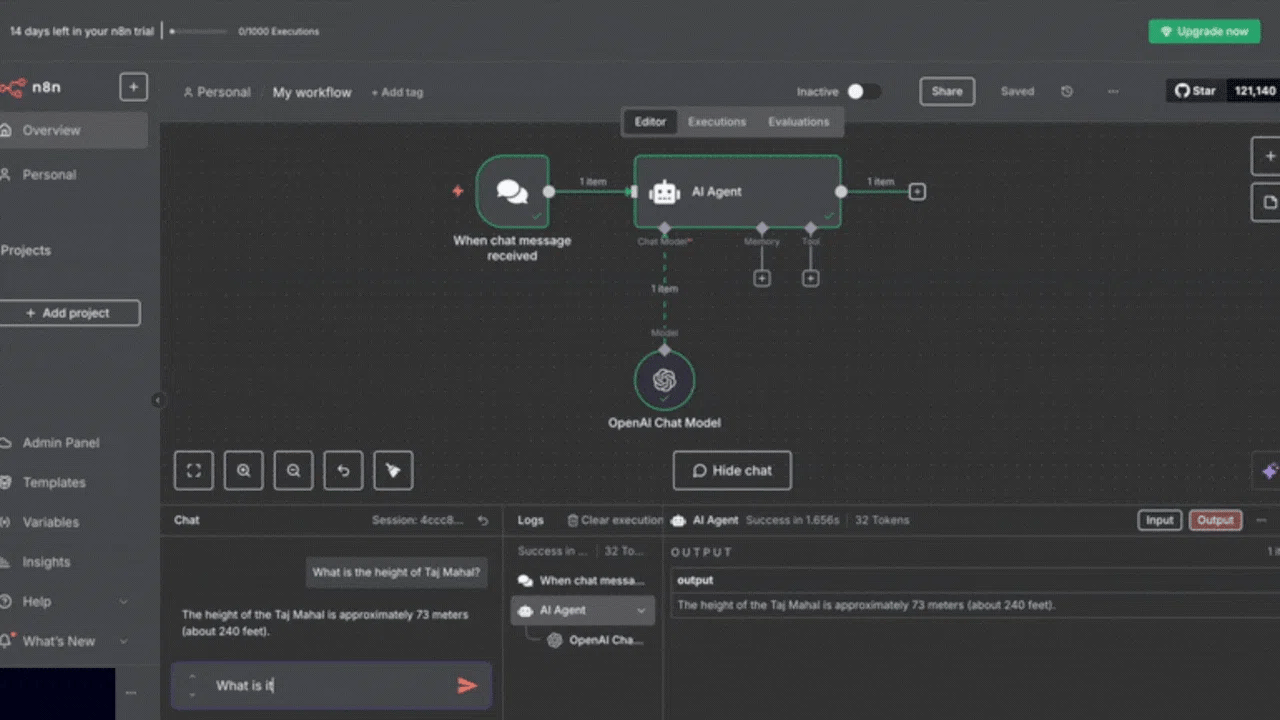
Save the workflow and ask a question like “How tall is the Taj Mahal?”
Then ask “What color is it?”—but the bot won’t remember the previous message (no context).
Step 6: Add Memory
Add a Simple Memory node to the AI Agent.
Now the bot can remember previous messages and understand context.
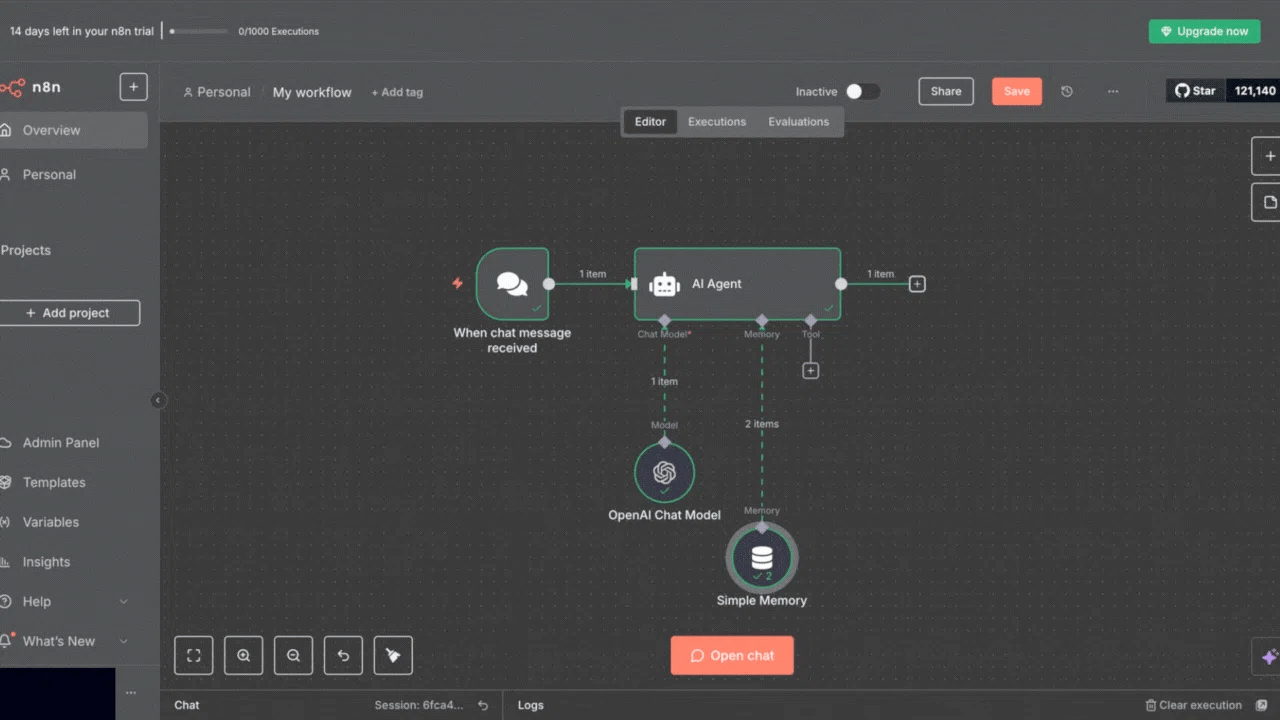
Example:
You ask “What color is it?”
The bot remembers that "it" refers to the Taj Mahal and responds accordingly.
Set the memory “window length” to 5 to retain the last five messages.
Step 7: Re-Test with Memory
Now the bot can hold conversations across multiple messages, keeping context and responding naturally.
Bonus: Tools and Output Parsers
Tool Integration: The AI agent can do more than text generation. It can perform external actions via APIs, like fetching weather info or reading files.
Example: “What’s the weather in Bangalore?” → Calls a weather API and returns live data.
Output Parsing: AI responses can be auto-formatted into structured data like JSON.
Example: Extract name, email, and complaint from a support ticket and send it directly to your CRM.
Prompt Customization: You can separate “user message” (from the chat) and “system message” (hidden instructions to the AI).
Feature | n8n | |
|---|---|---|
Audience | Non-coders, business users | Developers, power users |
Strengths | Easy SaaS integrations, intuitive UI | High flexibility, custom JS nodes |
Pricing Model | Per operation | Per workflow run |
Best Use Case | Quick business automation | Complex workflows, AI agents, RAG systems |
Conclusion
n8n is a powerful open-source tool that lets you build your own AI agents and automation systems without coding. By simply adding and connecting nodes, you can go from a basic chatbot to complex AI-driven workflows that pull in external data.
If you're a developer or AI enthusiast looking for flexible, low-cost tools—n8n is a valuable asset.
Let me know if you’d like a downloadable template for this setup or a visual walkthrough.
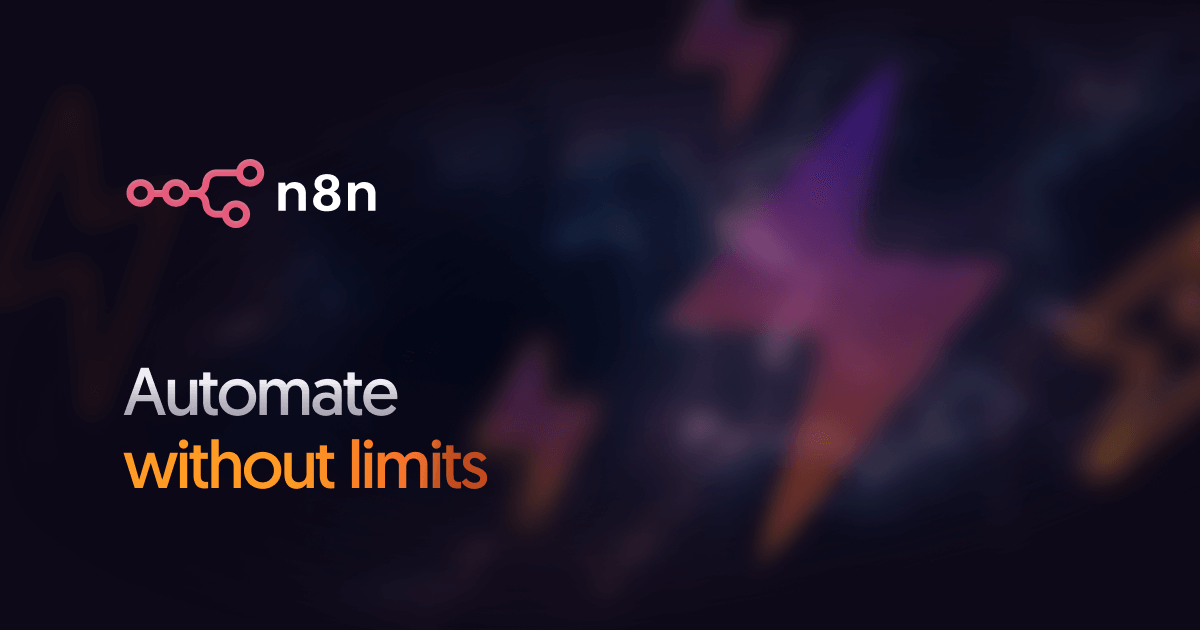
Reply